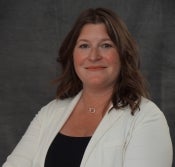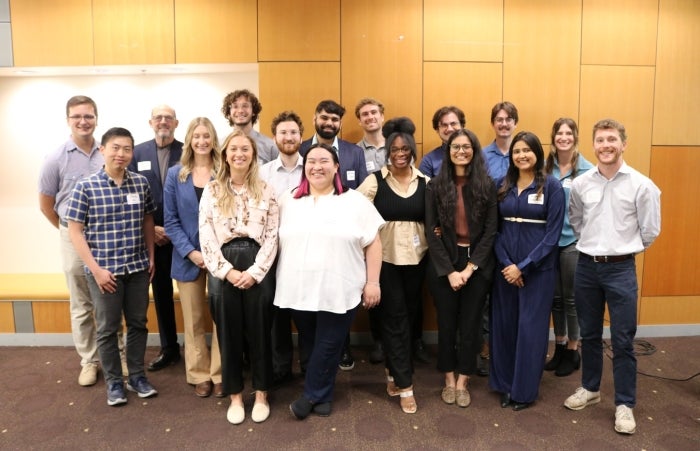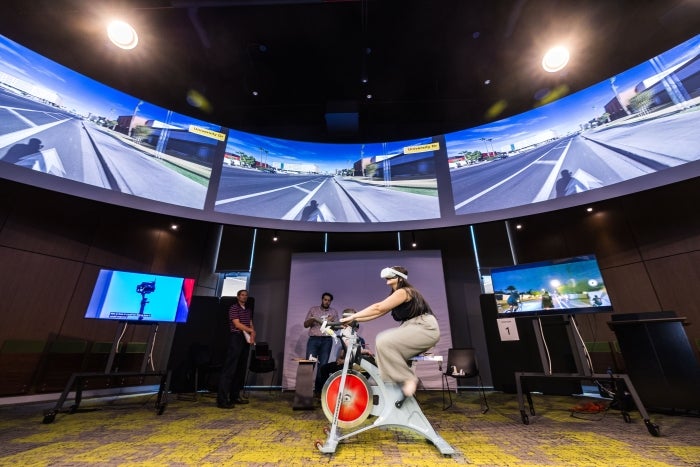New ASU Online program empowers next generation of urban planners

Students of the spring 2024 Master of Urban and Environmental Planning workshop reimagined active transportation for Phoenix’s North Mountain Village and strategies for improvements along the Arizona Canal. Courtesy photo
As cities and rural areas worldwide face increasingly complex challenges, the demand for skilled urban planners has never been greater.
This fall, Arizona State University’s Master of Urban and Environmental Planning, or MUEP, program will launch its flagship degree via ASU Online, allowing students to lead from anywhere. The program prepares the next generation of planners for roles in public, private, consulting, development and nonprofit sectors through courses that address complex social, economic and environmental issues in diverse communities.
The new online format offers flexibility for students who are passionate about urban and environmental planning but unable to attend on-campus classes. It maintains the same rigorous and comprehensive curriculum as the on-campus program.
Meagan Ehlenz, associate director of planning programs in the School of Geographical Sciences and Urban Planning, talks about her vision for the MUEP program, its unique offerings and the critical role aspiring urban planners play in today's world.
Question: What makes ASU’s new online MUEP program unique?
Answer: The wonderful thing about the MUEP program is that planning really is for everyone and is at the heart of everything. We're excited to bring voices from all over the country and the globe to talk about the fundamentals of planning and bring new ideas from an urban, rural and an international perspective.
Another unique advantage of our online MUEP degree is career advancement. There's an opportunity for you if you're already a planner somewhere and you want to pursue your graduate degree for a promotion. This can be a steppingstone, and now you can do it from wherever you live, wherever you work without having to relocate to Phoenix.
Q: What is your vision for the program?
A: We give you the skills and tools to take it to the next level and be world changers. That's what we need right now, and I think that our online format is primed to bring in a huge diversity of voices to that conversation and generate real change. This master's degree, particularly in an online format, is a space for us to learn, grow and contribute to an evolving planning conversation to empower the next generation of urban planners.
Q: Can you explain the flexibility and collaboration opportunities for students of the online program?
A: We are fortunate to be at a university that has a really strong infrastructure for online education. The other great thing about this degree is that while our campus-based program is a two-year program intended to be taken full time, the online version allows for you to do this at your own pace.
The online classes are asynchronous, meaning materials are available on demand, allowing flexibility within each week to complete work. Students can choose to take one or two classes per semester if juggling work and other commitments, or they can opt for a full-time semester with four courses. We also have digital platforms for collaboration and will bring in guest lecturers, giving students the same opportunities to learn from professional planners across the country and engage with real planning documents.
We are very proud of our hands-on approach. We provide not just the textbook opportunity to learn about planning, but to actually get your hands in there and do something with it.
Q: What are some of the key national and international urban planning conversations that the program engages with? How can the program enable students to participate in these conversations?
A: There are opportunities to build a customized learning pathway for you that addresses the multitude of challenges that are facing cities and rural areas across the world.
We dive into local and global planning conversations such as the Taiwan Semiconductor Manufacturing Company (TSMC) facility in Phoenix, the Arizona Research Center for Housing Equity and Sustainability (ARCHES), which addresses the interconnected issues of housing security, climate and health, and the rapid urbanization in the global South, to name a few.
You’ll also get different perspectives from our faculty as we cover a full spectrum of planning issues including transportation, environmental planning, heat resilience, sustainability, housing, community development, food justice, equity and social justice.
Q: How does the program prepare students for the future of urban planning?
A: We see so much potential in our students. My goal in the classroom is to empower them to chase down their fresh ideas, test them out and align them with what the profession has learned in the past. This program is designed to be a springboard for students to pursue their passions.
One of the most powerful things about being a planner — whether you work for a local government or a consulting firm — is to represent people. Planners facilitate the conversation and we bring people to the table.
Q: What career opportunities can graduates of the MUEP program expect?
A: There are so many job pathways you could pursue to truly make an impact in your community. We have very strong advising support who will help you figure out how to build your electives and experience in this program around supporting that passion area so you can make the next leap in your career.
More Arts, humanities and education

Professor's acoustic research repurposed into relaxing listening sessions for all
Garth Paine, an expert in acoustic ecology, has spent years traveling the world to collect specialized audio recordings.He’s been to Costa Rica and to Ecuador as part of his research into innovative…

Filmmaker Spike Lee’s storytelling skills captivate audience at ASU event
Legendary filmmaker Spike Lee was this year’s distinguished speaker for the Delivering Democracy 2025 dialogue — a free event organized by Arizona State University’s Center for the Study of…

Grammy-winning producer Timbaland to headline ASU music industry conference
The Arizona State University Popular Music program’s Music Industry Career Conference is set to provide students with exposure to exciting career opportunities, music professionals and industry…




